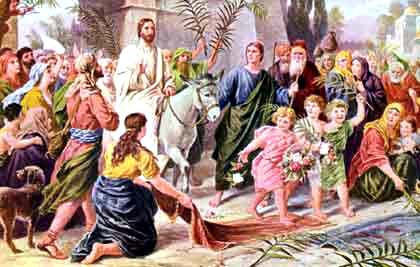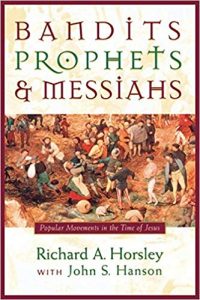
This continues from Part 2 where I continued discussing what Richard Horsley has to say about popular messianic movements in Israel up to the time of Jesus in Bandits, Prophets & Messiahs. In the last post I covered “social banditry” in Palestine (especially Galilee) and those who were looked upon as rightful kings in the early part of the first century.
What particularly interests me is the evidence that these movements represent popular messianism. Horsley is clear: there is no evidence of popular messianism before the time of Jesus. I have read many assertions that Josephus is describing messianic movements without explicitly describing them as such. But these assertions remind me of William Scott Green’s observation that many scholars have spent a lot of time studying messianism where the word is not found. The first clearest evidence we have of popular messianic hopes relates to the period after the fall of Jerusalem in 70 c.e. When we interpret movements before then as messianic are we guilty of reading later ideas back into an earlier period?
I do not deny that any of these pre-70 movements were messianic. They may have been. But what is the evidence? Are there alternative explanations that may fit the evidence (and the evidence for the origins of popular messianism) more economically?
This post addresses the Samaritan who led followers to Mount Gerazim, Theudas and “the Egyptian”. Continue reading “Popular Messianic(?) Movements Up To The Time Of Jesus and Beyond – Part 3”




 The answer is, I think, no. In this post I quote a few sections from Professor
The answer is, I think, no. In this post I quote a few sections from Professor